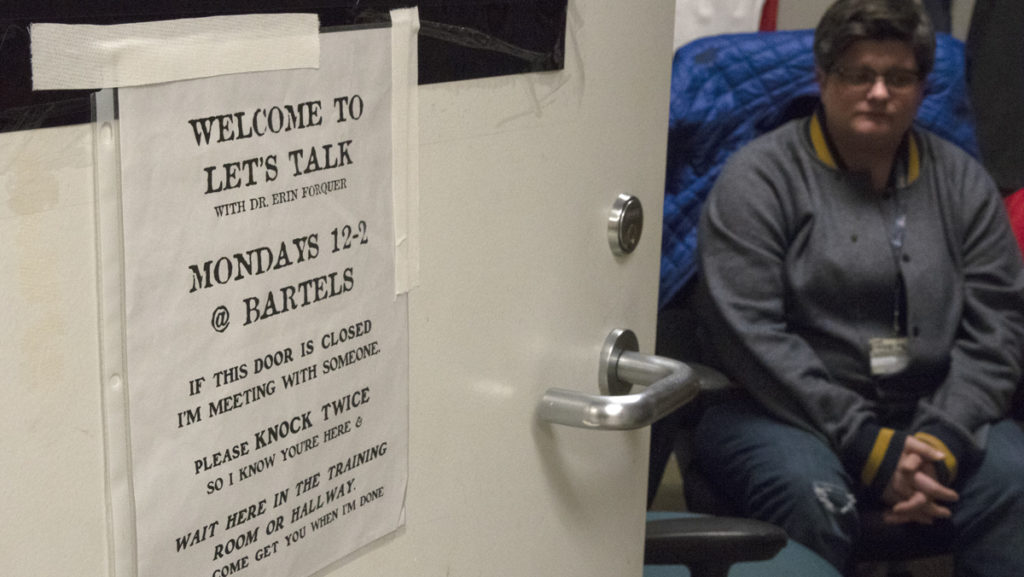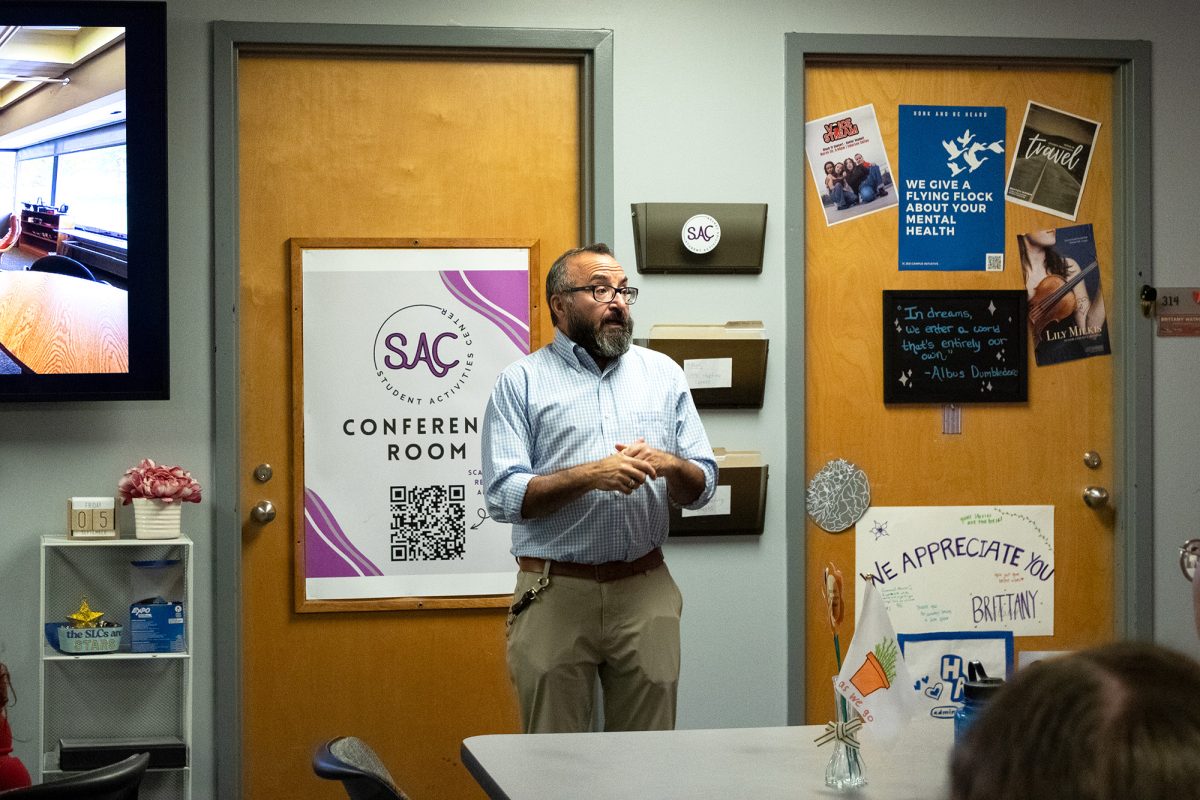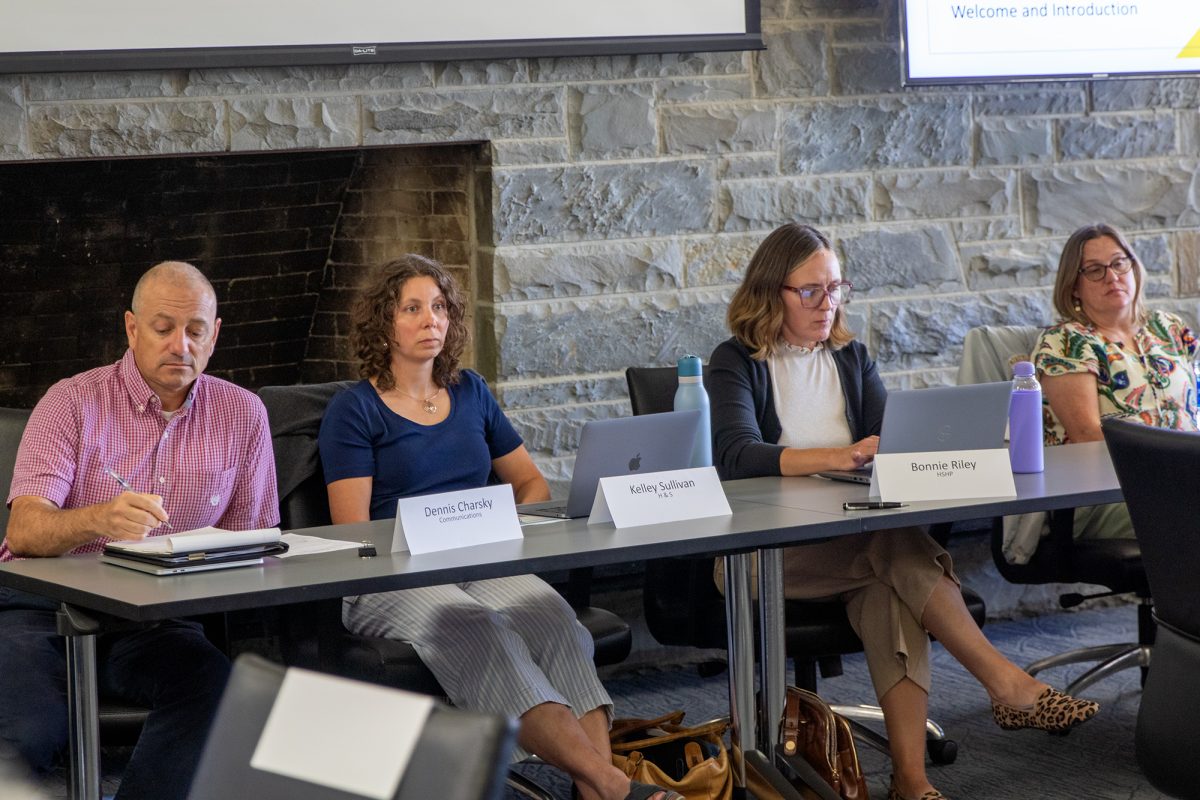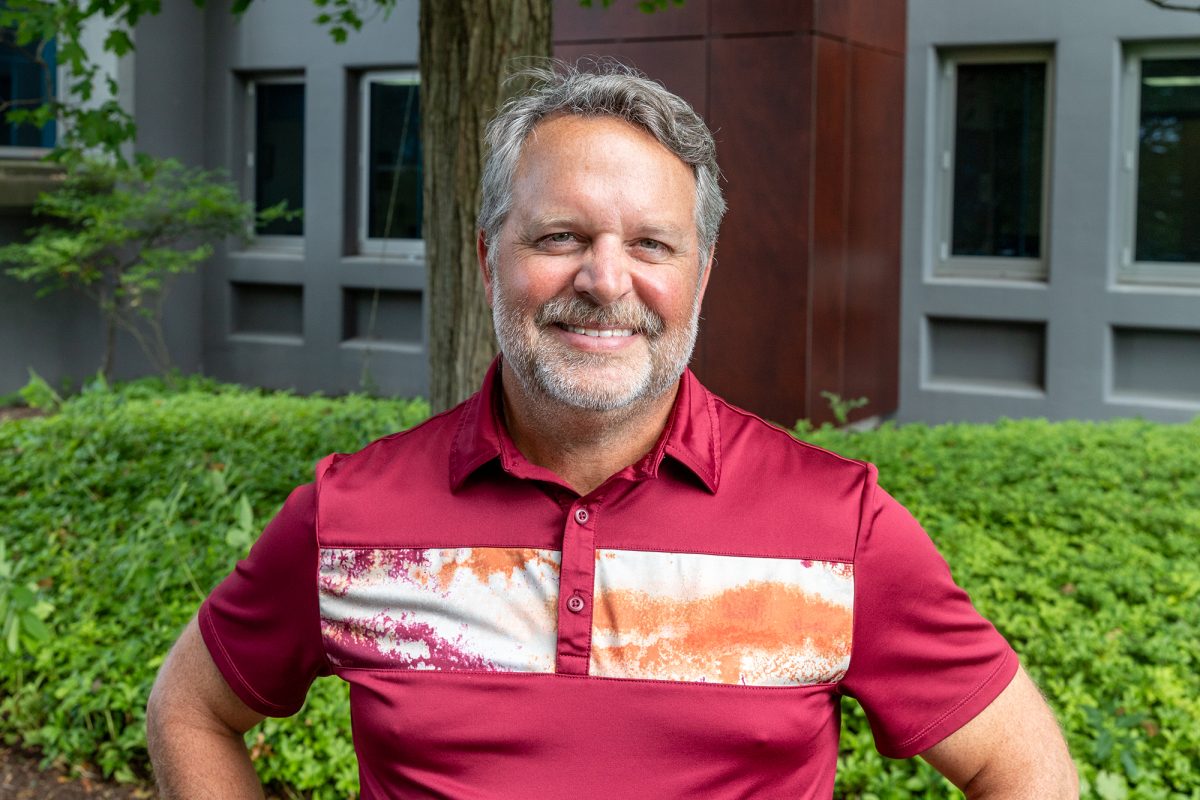The Ithaca College Center for Counseling and Psychological Services (CAPS) is developing a new service called Let’s Talk to increase the accessibility of mental health services for students.
Let’s Talk is a free, informal and confidential service that allows students to talk to CAPS counselors at different locations on campus. A pilot program began Feb. 11 and will continue throughout Spring 2019. The CAPS staff will analyze data collected about how often Let’s Talk is used during Spring 2019 in order to evaluate the program over the summer. The three locations where Let’s Talk will be offered are the Dillingham Center, Smiddy Hall and the James J. Whalen Center for Music, and one counselor will be available in each location. It will be offered on Tuesdays, Wednesdays and Thursdays, starting at 3:15 p.m. and ending at 4:45. The program is available to all students and is a drop-in service, so appointments are not necessary in order to talk to a counselor.
Let’s Talk is best suited for students who are unsure about pursuing counseling but want to talk to a counselor, students who are not interested in ongoing counseling, students who have specific problems and would like to talk with someone and students who are concerned about a friend and want to figure out what to do, according to the college’s Let’s Talk frequently asked questions page.
CAPS counselor Ron Dow said via email that the purpose of the Let’s Talk program is to increase the accessibility of counseling services on campus. CAPS has struggled to provide adequate services for students at the college for years. In 2015, the Get CAPS Ready campaign was created by students to increase the funding for CAPS after the college rejected a recommendation to add a new counselor to the CAPS staff. The campaign led to the hiring of an additional postdoctoral resident, but even after the establishment of this position, students still had concerns about the long wait times for appointments, which in the past have reached up to 14 days. CAPS currently has ten counselors on staff but began a search for two more counselors Jan. 10.
Dow said students can go to Let’s Talk for a variety of reasons, ranging from not wanting long-term counseling to just wanting to talk to someone.
“Some students are not seeking ongoing counseling — they just want to talk about a specific issue they are struggling with,” Dow said. “Some students are not experiencing a crisis but still prefer the drop-in approach to talking. Some students have never talked with a counselor and making an initial appointment can be a barrier to seeking help.”
Freshman Michelle Pei, advertiser for the college’s branch of Active Minds, a nonprofit organization that supports spreading mental health education and awareness, said she thinks the Let’s Talk program is beneficial because it provides a less time–consuming and more informal approach to therapy.
“I personally think it’s pretty cool because therapy, in general, can be kind of time–consuming and a commitment, while this is kind of a dipping your toes into if you want to go to therapy or not,” Pei said.
However, Pei said she thinks Let’s Talk is not as in depth and cannot provide the kind of help that ongoing counseling can.
“I don’t think it would be substantial enough because actual counseling takes a lot of time and effort that Let’s Talk can’t necessarily provide,” Pei said.
Freshman Rachel Cohen, the fundraising chair for Active Minds, said she thinks the drop-in aspect of Let’s Talk will be helpful for students who are going through a mental health emergency or have an issue that needs to be addressed immediately.
“For a lot of kids either in crisis, or having a current issue, that it’s going to have a positive affect on them,” Cohen said. “Even just talking to someone in that moment will hopefully get it off their chest and help them feel better about it.”
Cohen said even though the program will be beneficial, it cannot replace ongoing counseling.
“A 30–minute appointment compared to working for an hour every week with a therapist, you can’t replace that — but it can definitely help,” Cohen said.
The program is based on the Let’s Talk program that was developed at Cornell University, which provides free, informal and confidential counseling services at 11 locations on the Cornell campus. The Let’s Talk program at Cornell is available Monday through Friday and is offered in two-hour increments, with most starting at 2:30 p.m. and ending at 4:30, but with one starting at noon and ending at 2 p.m. and another starting at 2 p.m. and ending at 4. Dow said the college will evaluate the success of the program and assess if the program’s hours and locations should expand in the future.
Juile Glanville, health communications specialist at Cornell Health, said via email that the Let’s Talk program was developed to increase accessibility to mental health services for students, specifically for groups of students who may be less likely to go to ongoing counseling.
“Cornell’s Counseling and Psychological Services (CAPS) staff developed Let’s Talk in 2008 to make it easier for students to access mental health care on campus,” Glanville said. “Although open to all students, the program was designed specifically to help reach students who might be reluctant to seek traditional counseling services, including first-year students, international students, and students of color.”
She said the program is important because it provides students suffering with their mental health with an accessible, convenient means of seeking help that can be a short consultation or lead to ongoing counseling. Among college students, 48.2 percent of students say anxiety is their highest concern, while 34.5 percent of students say depression is their highest concern, according to The Association for University and College Counseling Center Directors Annual Survey.
“More than ever, students on college campuses are experiencing high rates of mental–health concerns like depression and anxiety,” Glanville said. “Because of Let’s Talk, these students can meet with a professional counselor any day of the week, Monday through Friday — at locations that are convenient to them — to get support and referrals to campus resources. For some students, a brief consultation is all they need; For others, Let’s Talk can be a way to get connected with more traditional, ongoing counseling. Either way, the program helps get students the care they need, when and where they need it.”








